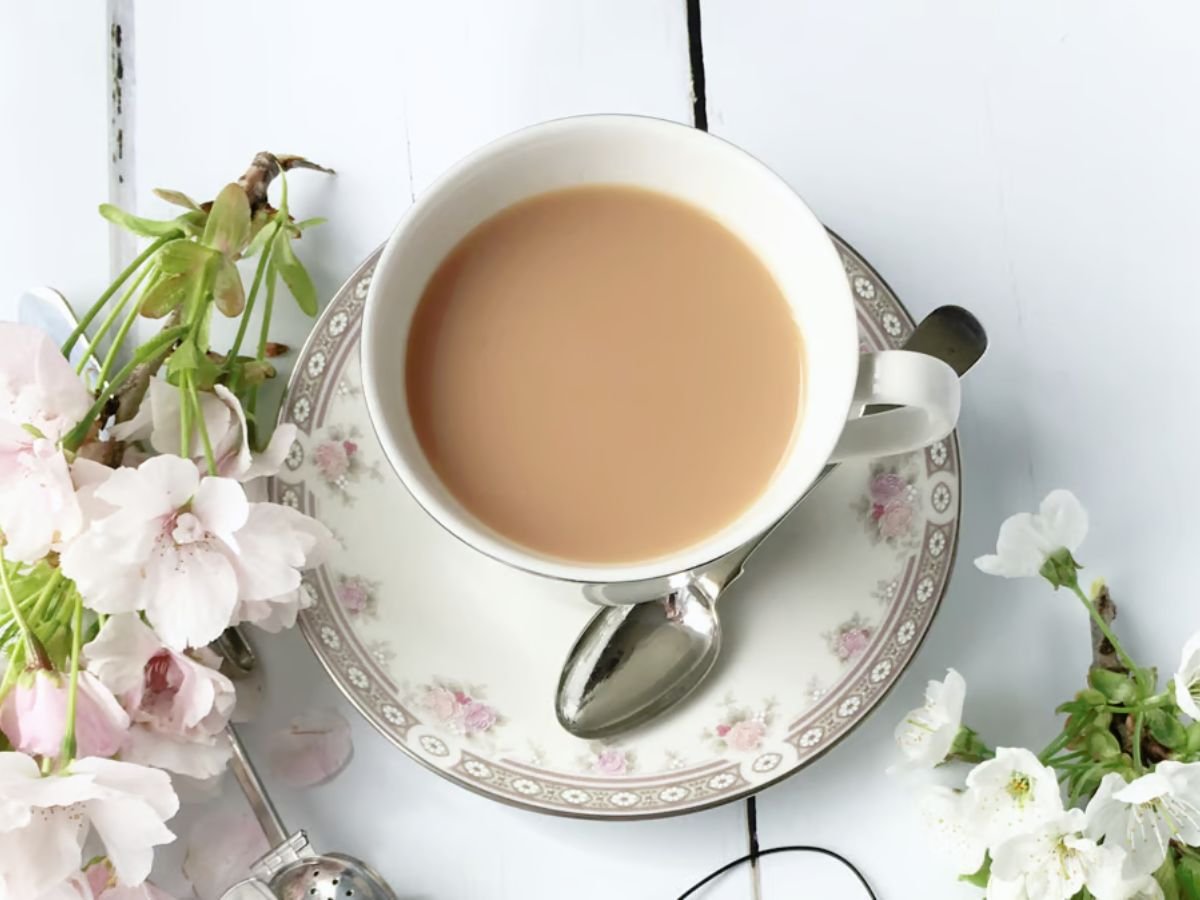New Delhi, 20 July 2025: In the realm of Ayurveda, simplicity is often the secret to balance, and tea—when consumed without milk and sugar—emerges as a healing beverage rather than just a daily habit. According to this ancient Indian system of medicine, food and drink should not only nourish but also align with the body’s doshas—Vata, Pitta, and Kapha. While the modern world often masks the natural essence of tea with excessive sugar and dairy, Ayurveda encourages embracing tea in its purest form. Drinking tea without milk and sugar enhances its medicinal qualities, supports digestion, detoxifies the body, and balances internal energies. Whether it’s green tea, herbal infusions, or plain black tea, consuming it without additives helps retain its pranic value or life force energy—something that’s often lost with overprocessing and unnatural enhancements.
Supports Better Digestion and Gut Health
Ayurveda places digestion—or “agni”—at the center of good health, and tea without milk and sugar helps stoke this digestive fire gently. Milk, especially when combined with tea leaves, can dampen digestion for some people, particularly those with Kapha or Pitta imbalances. Sugar, considered tamasic in Ayurveda, slows down metabolism and creates sluggishness in both mind and body. By eliminating milk and sugar, tea becomes light, stimulating, and more digestible. Herbal teas made from ginger, tulsi, fennel, or cumin are particularly recommended to soothe bloating, aid nutrient absorption, and clear toxins from the digestive tract. This simple form of tea becomes a therapeutic drink rather than just a source of caffeine or comfort.
Balances Doshas Naturally
Every individual has a unique constitution governed by the three doshas—Vata (air and space), Pitta (fire and water), and Kapha (earth and water). Tea without milk and sugar can be tailored to balance these doshas with the right ingredients. For Vata types, who may suffer from dryness, coldness, and anxiety, warm ginger or cinnamon teas without milk provide grounding and warmth. For fiery Pitta individuals, mint or rose petal infusions can offer cooling relief. For Kapha types prone to congestion, lethargy, and weight gain, black tea or clove tea with a hint of turmeric can stimulate energy and circulation. When consumed in moderation and in harmony with one’s dosha, tea becomes a powerful, personalized health tonic.
Aids in Detoxification and Cleansing
One of the central benefits of drinking tea without milk and sugar is its natural detoxifying effect. Milk and sugar can hinder the body’s cleansing processes by increasing mucus formation, especially in Kapha-dominant individuals. In contrast, plain tea—especially herbal blends like neem, lemongrass, or coriander—is known to promote healthy liver function and assist in flushing out toxins or “ama” from the system. This daily detox can help clear the skin, improve bowel movements, and boost energy levels. Sipping warm tea throughout the day also helps keep the lymphatic system moving, which is essential for overall vitality according to Ayurvedic philosophy.
Promotes Mental Clarity and Alertness
Tea without milk and sugar has a subtle and calming effect on the nervous system. Without the heaviness of dairy and the stimulating spike from sugar, the mind remains more stable and focused. Ayurveda teaches that mental clarity arises when the mind is sattvic—pure, calm, and balanced. Herbal teas like tulsi, brahmi, or ashwagandha are sattvic in nature and promote focus, reduce anxiety, and support emotional resilience. Even black or green tea in moderation, consumed plain, can improve alertness without the jittery crash that often follows sugary beverages. For those practicing yoga, meditation, or pranayama, unsweetened tea is ideal for enhancing presence and awareness.
Supports Weight Loss and Metabolic Health
Ayurveda links excess Kapha and ama (toxins) to weight gain and sluggish metabolism. Drinking tea without milk and sugar aligns with the Ayurvedic principle of “laghu” or lightness, making it ideal for those aiming to shed extra weight or reduce water retention. Teas like ginger, black pepper, cinnamon, or cumin not only stimulate digestion but also increase “meda dhatu agni”—the metabolic fire that governs fat metabolism. By avoiding sugary tea, one prevents unnecessary insulin spikes, which are often responsible for fat storage and energy crashes. Regular consumption of warm, spiced teas without milk throughout the day supports healthy fat breakdown and improves energy expenditure, all without the burden of excess calories.
Improves Immunity and Respiratory Health
Milk and sugar, when consumed together—especially in tea—are known in Ayurveda to produce excess “kapha,” leading to phlegm accumulation, sinus issues, and poor immunity. On the contrary, plain herbal teas made with tulsi, ginger, turmeric, black pepper, or mulethi are excellent for boosting the immune system and clearing respiratory channels. These teas help relieve sore throats, reduce inflammation, and strengthen the body’s natural defense mechanisms. When consumed regularly, especially during seasonal changes, unsweetened tea becomes a protective ritual for long-term health and immunity.
Encourages Mindful Consumption and Lifestyle Harmony
Ayurveda is not only about what you consume but how you consume it. Drinking tea without milk and sugar promotes mindful consumption—encouraging individuals to tune into the taste, aroma, and effect of the beverage on their system. It slows down the pace of life, offering a moment of pause and reflection. This practice aligns with “dinacharya” or daily routine, a key Ayurvedic concept that fosters harmony between the body, mind, and environment. Preparing a warm cup of tea with intention—perhaps using spices that suit the season or time of day—becomes a grounding ritual that aligns with circadian rhythms and internal well-being.
Tea, in its most natural and unadulterated form, offers a host of Ayurvedic health benefits. Free from milk and sugar, it becomes light, sattvic, and therapeutic. From aiding digestion and improving mental clarity to balancing doshas and detoxifying the system, plain tea is not just a beverage—it’s medicine in a cup. Whether sipped slowly during a quiet morning or taken after meals to aid digestion, tea without additives fits seamlessly into the Ayurvedic way of living. For those looking to enhance vitality, boost immunity, or simplify their health routine, switching to unsweetened tea could be one of the most rewarding and restorative decisions.






